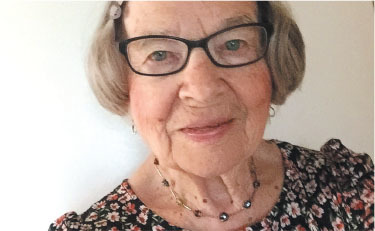Three questions for Winnipeg poet Sarah Klassen
You’ve published 12 books. Which is getting the most reaction these days and why?
My fiction generally gets more attention than poetry. Readers like a story and many find poetry a bit intimidating. My latest novel The Russian Daughter is still attracting attention from individuals and book clubs. People say they enjoy the pace of the narrative and the characters.
Why does your writing about Russian Mennonites reach beyond people with that heritage?
My first poetry collection Journey to Yalta and my latest novel are my most Menno-focused publications. Both centre on family narratives backgrounded by war, revolution, anarchy and plague. Themes like the quest for healing, adoption and family dynamics are universal. The larger political issues trigger thoughts of emigration, another common experience. Don’t we all come from somewhere else? Many families and people groups have their escape story.
You taught high school English for many years. Do you have a sense of the status of creativity among young people today?
In every generation there is creativity among young people. Young poets are writing and wanting to share their words, although not always in book form. Many seem drawn to spoken word poetry, whether in person or online, and much of their work is found in online literary magazines. Young people will continue to make new art about love, and loneliness and faith. They will also find ways of channelling their creative energy into addressing the large issues that threaten our world.

Sarah Klassen lives in Winnipeg. Her most recent book is The Russian Daughter (CMU Press, 2022).